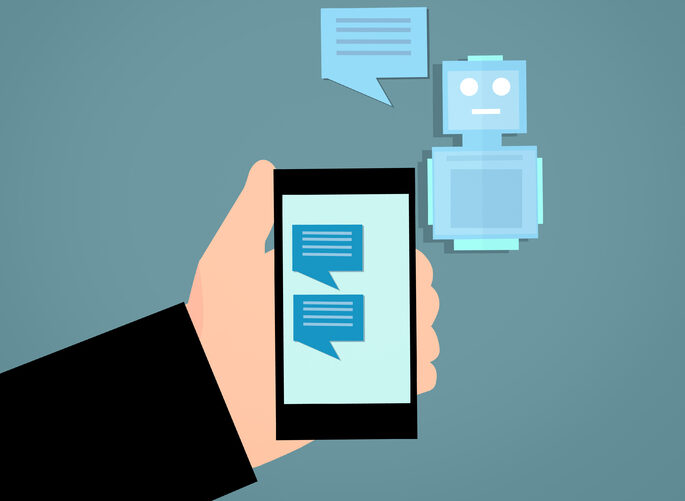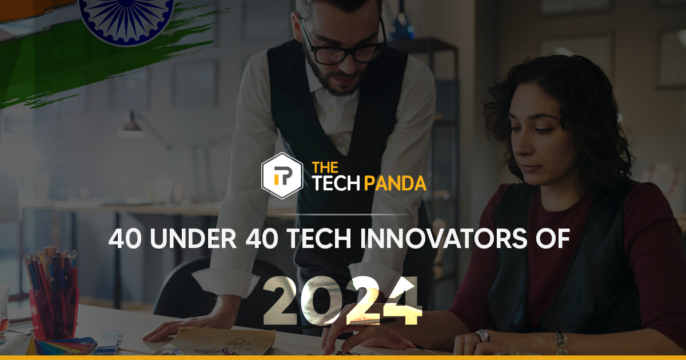Big and small businesses are harnessing the power of artificial intelligence (AI) to enhance their customer communication. In an era where personalized interactions and seamless engagement are paramount, AI is easing the path to success for businesses of all sizes.
The AI market is expected to grow to nearly US$2 trillion by 2030, where AI in customer service is a key focus area for many businesses. AI-driven chatbots are becoming the frontline responders for customer inquiries, who can handle routine queries, freeing up human agents to focus on more complex issues.
Read more: Breaking the pattern: A power couple’s journey of love, business & integration
Conversive is a conversational messaging solution for professionals and institutes, enabling personalized conversations based on rich data from CRMs and AI-powered chatbots. The SaaS platform aids use cases such as appointment reminders for doctors, student admission programs, and job requirement campaigns.
The Tech Panda spoke to Nitin Seth, Co-founder and CEO of Conversive, the new conversational messaging platform, about their recent launch and where they’re headed.

We have always been about response based messaging. That’s how our journey started. The motto has been to enable conversations or communication for our customers
Nitin Seth, Co-founder and CEO of Conversive
The company’s journey started way back in 2008, when the team started working primarily around conversational messaging or communication, serving local businesses in Mumbai. Along the way, the company took different pivots, such as building solutions on the cloud, integrating with CRMs, which is the database for the customer records. Today, the company, while headquartered in India, has several clients in the US.
“We have always been about response based messaging. That’s how our journey started. The motto has been to enable conversations or communication for our customers,” says Seth, who is an IIT Mumbai alumnus founding his second startup.
With Conversive, they are building conversational messaging solutions for professionals and institutes like doctors, lawyers, education offices of universities, mortgage brokers, etc., empowering them to build the optimum communication with their customers.
How it Works
When consumers enquire about a certain service, they typically search online, whether it’s future homeowners looking to find a mortgage application, or a student trying to find out admission requirements.
“Messaging is the best channel to communicate with all these inquiries and prospects. So that’s when our customers would run the messaging. We power personalized conversations with rich data from the CRM,” Seth explains.
What we say is that Conversive is not just about chatbots, but contextual chatbots, and also, the chatbots know when to give control back to a human being, when the human being is needed to intercept the chat or set up an appointment with a human being
Conversive personalizes the response to a customer, in accordance with the industry it serves. For example, its AI will comprehend if a person is sick and is looking for a doctor appointment.
“We train these chatbots using the databases or what we call knowledge bases for professionals so we can scan websites and find the information,” he adds.
He also reveals that they use natural language models, LLMs, like Open AI and Llama, and there are some other libraries also that they use to personalize the conversation. AI algorithms analyze vast amounts of data to predict customer needs. By understanding patterns and trends, businesses can proactively address issues before they escalate.
Adding AI to the Mix
Small businesses often lack round-the-clock resources. AI-powered customer support bridges this gap by providing continuous assistance. Customers can get answers anytime, even during non-business hours. This is why Conversive is adding AI to the mix, bettering the quality of communication while saving time and cost to their customers.
“We have AI powered chatbots who are contextual with CRM data, and they are built for use case. We are building vertical AI for these customers,” says Seth.
This includes use cases like appointment reminders for doctors, student admission programs, student nurtures, or even a job requirement campaign.
Typically, all these customers and these companies don’t have people to answer messages all the time, and there are so many channels, they can’t have people all the time at all these channels. So that’s where the need for AI comes
“Typically, all these customers and these companies don’t have people to answer messages all the time, and there are so many channels, they can’t have people all the time at all these channels. So that’s where the need for AI comes,” he adds.
In fact, AI has been on the company’s roadmap for the past three-four years, because there has been a natural need for powering these conversations when people are not available. In some of the industries Conversive caters to, most of the communication happens post office hours.
For example, students prefer messaging at night, but the admissions and universities don’t have people beyond office hours. Similarly, job candidates prefer messaging with a recruiter beyond office hours, or on weekends.
“That was the origin for the need,” he explains.
This way, whether it’s a late-night query or a weekend request, Conversive can ensure that someone is always there to assist.
The Human Touch
However, Seth also highlights that Conversive isn’t about complete reliance on AI. Context is of significance.
“What we say is that Conversive is not just about chatbots, but contextual chatbots, and also, the chatbots know when to give control back to a human being, when the human being is needed to intercept the chat or set up an appointment with a human being,” he emphasizes.
Many businesses get into trouble for relying blindly on AI, which, while being far ahead in its prowess, isn’t quite all that perfect yet.
“It is important to have that human touch and also to have that personalization of the conversation. That’s what we believe in,” he reiterates.
As the AI market hurtles toward a projected value of nearly US$2 trillion by 2030, customer service along with AI-driven chatbots now serve as the first responders to customer inquiries, liberating human agents to tackle more intricate issues.












